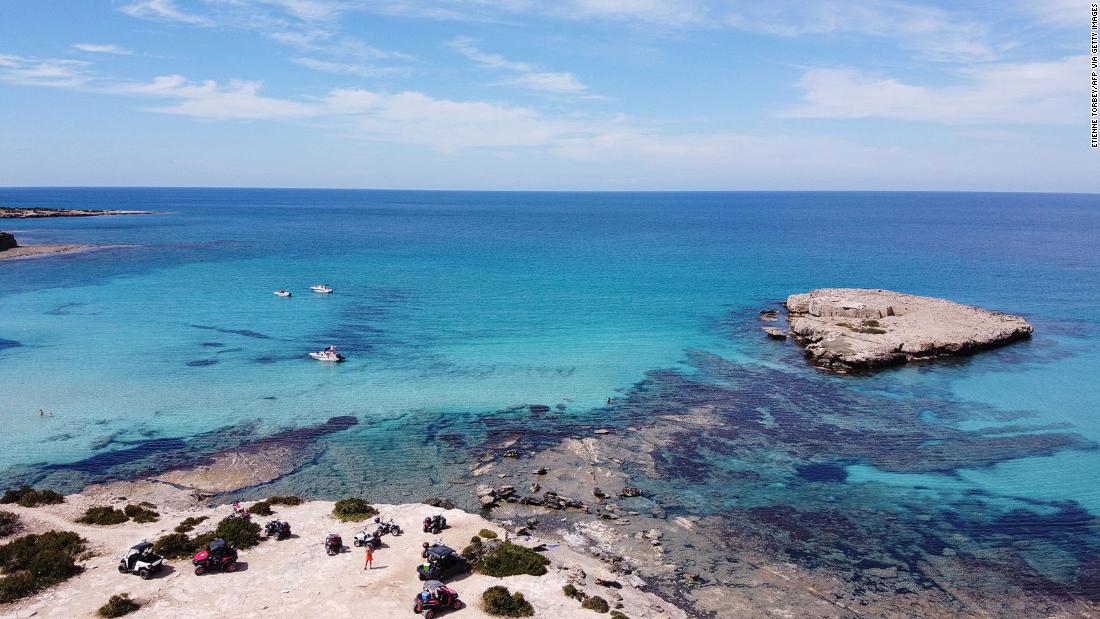(CNN) — Ever since the world went into lockdown back in March, many of us have been furiously making a mental list of all the places we’ll go once we’re finally able to travel again.
Now borders are reopening and restrictions are slowly being lifted, hotels and resorts are reopening, and the prospect of travel has become a reality once more.
And after months of little to no income from tourism, destinations across the world are pulling out all the stops to ensure that visitors choose them for their first big trip in the new era of travel.
New era of travel
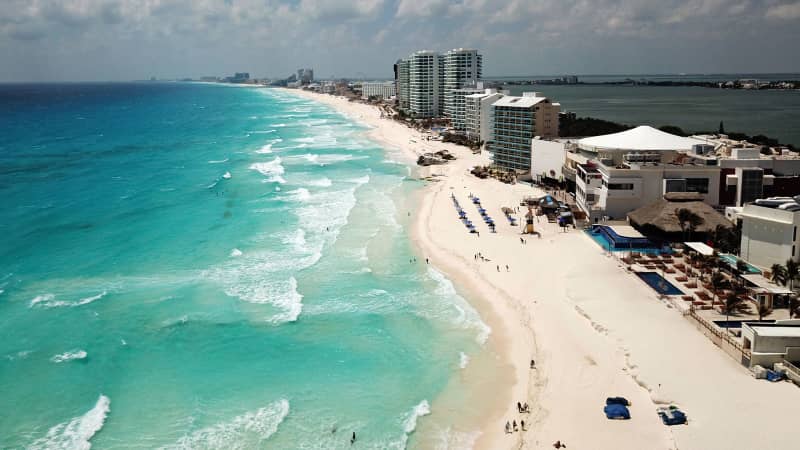
The Hotel Association of Cancun is giving customers who pay for two hotel nights a further two nights extra.
ELIZABETH RUIZ/AFP via Getty Images
While visitors will still have to pay for their flight and accommodation, Balkan nation Bulgaria has opted to stop charging visitors fees for sun loungers, umbrellas and even tables at its popular beaches.
And it’s not just major savings, and in some cases freebies, that are currently on the table for travelers.
Various countries are choosing to launch competitive campaigns aimed at convincing customers nervous about traveling in the wake of the ongoing Covid-19 pandemic that they’re a “safe” destination.
Central Asian nation Uzbekistan has gone as far as to offer a payout to visitors who contract Covid-19 while holidaying there.
But as the struggling travel industry attempts to rebuild, are such sweeteners really enough to convince uneasy travelers to take the plunge?
“In the short term, discounted flights and accommodation are likely to be common as travel providers restart their cash flow by stimulating demand,” Lord tells CNN Travel.
Safety guarantees
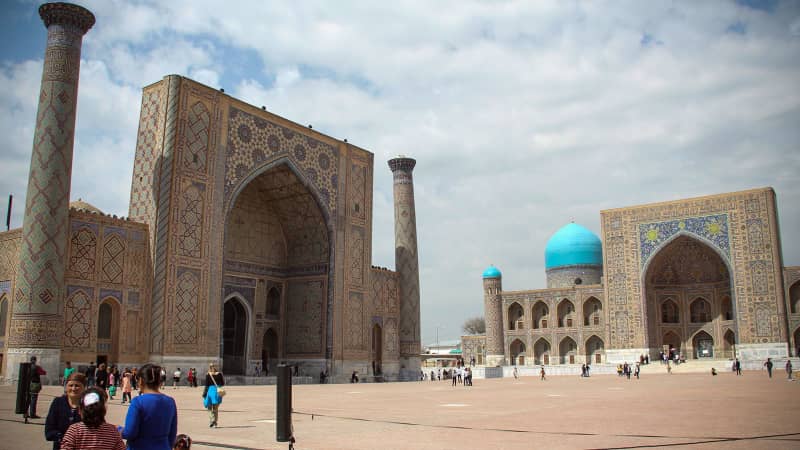
The government of Uzbekistan will pay travelers $3,000 in compensation if they become infected with Covid-19.
STR/AFP via Getty Images
“Longer term, we expect that prices will reflect bookings which offer more flexibility, safety and trust for the customer.
“In the absence of a vaccine, these factors will be more important for travelers and could allow travel providers to charge more of a premium.”
However, Lord stresses that “flexible booking policies” and accommodation policies are more valuable to customers during these uncertain times.
When Uzbekistan launched its national guarantee to visitors, the destination’s tourism officials stressed they were so confident in their new safety and hygiene measures, the President was “prepared to put money where his mouth is.”
“Safety concerns will take some greater importance in the early stages of recovery including assurances of safety, low infection rates, testing and tracking throughout destinations, as well as additional hygiene measures and other measures to limit the spread,” he tells CNN Travel.
“It [the “Uzbekistan: Safe Travel Guaranteed” campaign] is essentially an insurance against Covid, and signals that the destination is safe to visit, while also offering a financial incentive.”
“There should be some degree of success for this measure, and it could be more effective than a simple price reduction, or 2 for 1 deal, in the very near-term.”
Lori Pennington-Gray, professor and director of the Tourism Crisis Management Initiative at the University of Florida, also believes guaranteeing customers will be well looked after if they contract the virus during their visit is a positive way to regain confidence in a destination.
“There’s still some anxiety with air travel,” she tells CNN Travel.
Regaining travelers’ trust
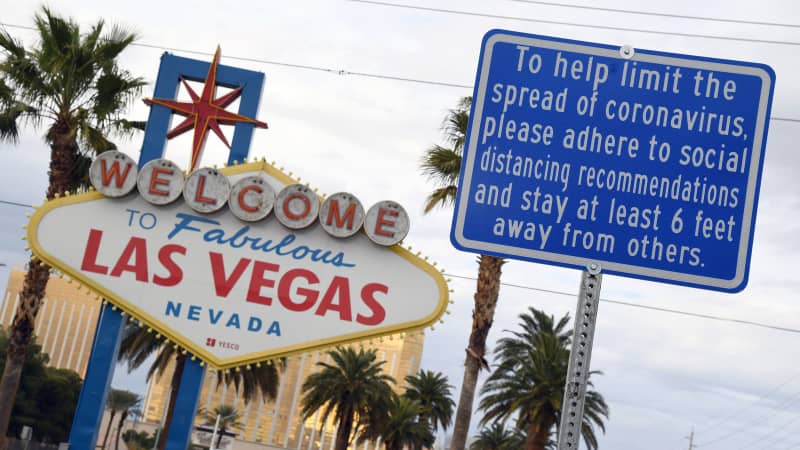
Casino owner Derek Stevens gave away more than 1,000 flights to Las Vegas in May.
Ethan Miller/Getty Images
“It’s important for the destinations to build back trust, and one of the ways they can do that is by having programs that show the traveler that they’re committed to their safety.”
“So things like covering the cost of their medical bills or covering their funds [if they contract Covid-19] are important.
“I don’t think simply having that in place will convince people to go back. But it’s a way of reinforcing that destination’s commitment to keeping its visitors safe.”
Pennington-Gray acknowledges some travelers are simply more accepting of risks than others, and those are the customers destinations should be targeting at this particular point in time.
“We’re seeing that some people are waiting for a vaccine because they’re really risk-averse and they’re going to hold off on travel [for now],” she says, emphasizing there probably isn’t an incentive attractive enough to convince those in this category to leave the country now.
However, for those already planning their next overseas trips and identifying places where borders are open, such incentives will be a major plus point.
“It’s about knowing who that market is and what they look like,” she adds.
Pennington-Gray also points out most travelers are very much aware that it’s not simply down to the destination to protect visitors now.
They’ll have to take the necessary steps to ensure their own safety while traveling, such as wearing masks when necessary and complying with local social distancing measures, which differ from destination to destination.
“It’s going to be this balancing act between what the industry can do and share with the consumer and what the consumer can do to protect themselves,” she adds.
Long road to recovery
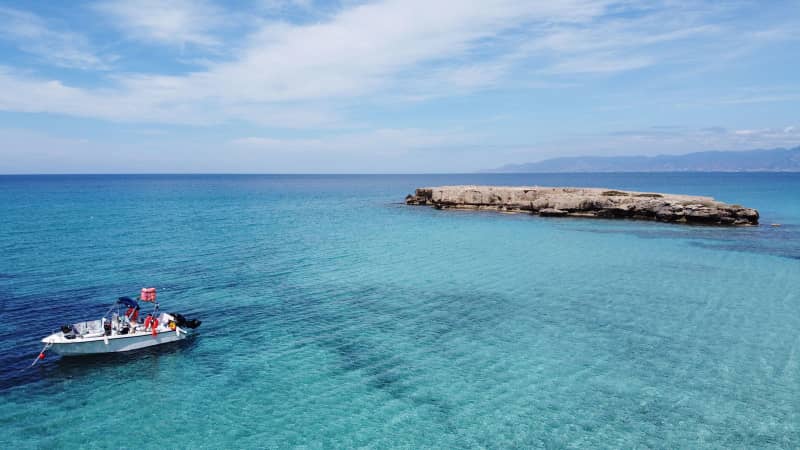
Cyprus has pledged to cover the lodging, food, drink, and medication costs for visitors who test positive for the virus during their stay.
ETIENNE TORBEY/AFP via Getty Images
“While it’s clearly a challenging time for the industry, we have seen green shoots of recovery in some markets and expect it to gather momentum after a period of tentative travel,” she says.
“Though the number of searches on Skyscanner’s site globally decreased at the beginning of lockdown in March, we saw a gradual increase in searches in the months of May and June in countries like the United Kingdom and Spain as travel restrictions began to ease.”
“This pent-up demand for travel as shown in global search behavior has resulted in a significant increase in bookings during this same time period as soon as restrictions allowed.”
Lord says Skyscanner saw a 116.4% month-over-month increase in flight bookings in the United Kingdom between May and June 2020, while the numbers for Spain shot up 144.9% month-over-month within the same period.
Although such figures are certainly encouraging, it’s likely to be a while before the travel industry rebounds, and experts have suggested things may never go back to the way they were.
“I’m not sure it [the travel sector] will ever be identical to the way it was [pre-Covid 19],” says Pennington-Gray.
“As far as operating at full capacities and with the same volumes, it may take years to get to that. But we know from previous crises that the travel industry is very resilient.”
“It’s not going to be about using incentives to get people to travel,” she adds. “It’s really going to be about a commitment to business practices.
“People expect the industry to engage in things that will keep them safe, such as providing cleaning stations, and to communicate those things to the consumer.
“The travel industry will rebound, it just isn’t going to happen tomorrow.”
